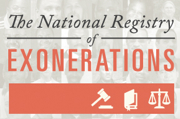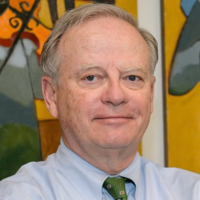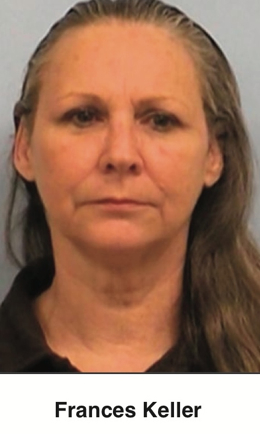Rascals case in brief
In the beginning, in 1989, more than 90 children at the Little Rascals Day Care Center in Edenton, North Carolina, accused a total of 20 adults with 429 instances of sexual abuse over a three-year period. It may have all begun with one parent’s complaint about punishment given her child.
Among the alleged perpetrators: the sheriff and mayor. But prosecutors would charge only Robin Byrum, Darlene Harris, Elizabeth “Betsy” Kelly, Robert “Bob” Kelly, Willard Scott Privott, Shelley Stone and Dawn Wilson – the Edenton 7.
Along with sodomy and beatings, allegations included a baby killed with a handgun, a child being hung upside down from a tree and being set on fire and countless other fantastic incidents involving spaceships, hot air balloons, pirate ships and trained sharks.
By the time prosecutors dropped the last charges in 1997, Little Rascals had become North Carolina’s longest and most costly criminal trial. Prosecutors kept defendants jailed in hopes at least one would turn against their supposed co-conspirators. Remarkably, none did. Another shameful record: Five defendants had to wait longer to face their accusers in court than anyone else in North Carolina history.
Between 1991 and 1997, Ofra Bikel produced three extraordinary episodes on the Little Rascals case for the PBS series “Frontline.” Although “Innocence Lost” did not deter prosecutors, it exposed their tactics and fostered nationwide skepticism and dismay.
With each passing year, the absurdity of the Little Rascals charges has become more obvious. But no admission of error has ever come from prosecutors, police, interviewers or parents. This site is devoted to the issues raised by this case.
On Facebook
Click for earlier Facebook posts archived on this site
Click to go to
Today’s random selection from the Little Rascals Day Care archives….
Click for earlier Facebook posts archived on this site
Click to go to
Today’s random selection from the Little Rascals Day Care archives….
By time to testify, children knew their lines
Jan. 30, 2013
“They have been through more dress rehearsals than the cast of ‘Cats.’”
– Joe Cheshire, lawyer for Betsy Kelly, protesting the latitude given the prosecution in preparing Little Rascals children to testify (New York Times, Aug. 19, 1991)
Innocence, alas, does not guarantee exoneration
 June 11, 2012
June 11, 2012
After discovering the National Registry of Exonerations, I was happy to see that it lists Little Rascals defendants Bob Kelly and Dawn Wilson, whose convictions were overturned on appeal.
But what about Betsy Kelly and Scott Privott, who both finally accepted plea deals while maintaining their innocence, and Robin Byrum, Darlene Harris and Shelley Stone, all of whom waited years for prosecutors to drop charges?
The registry, a joint project of the University of Michigan Law School and the Center on Wrongful Convictions at Northwestern University, speaks unequivocally about “a wave of child sex abuse hysteria that swept the country….
“Starting in the early 1980s, some prosecutors, therapists and child welfare workers became
convinced that child sex abuse on a massive scale was rampant in their communities. They
believed that most of the victims were too afraid or embarrassed to discuss the abuse, so they
worked to overcome this fear and reluctance by using highly suggestive, persistent and
unrelenting questioning techniques when interviewing the young children.
“It worked. Some of the children complied and accused parents, day-care workers and adult acquaintances of numerous horrifying and bizarre acts. This led to a series of extraordinary prosecutions, many involving allegations of satanic rituals.”
Unfortunately, this acknowledgment of the moral panic doesn’t earn the remaining “Edenton 5” a listing in the registry. Here’s why, according to research assistant Ted Koehler:
“For a case to count as an exoneration for our purposes, a person convicted of a crime must be declared factually innocent by a government official or organization with authority to make such a declaration.
“If this has not happened, a person can still be exonerated if the person was relieved of all consequences of the criminal conviction by a government official with proper authority, through pardon, acquittal of the charges for which the person was originally convicted, or dismissal of those same charges. In such a case, the pardon, acquittal, dismissal or posthumous exoneration must have been the result, at least in part, of evidence of innocence that either (i) was not presented at the trial at which the person was convicted; or (ii) if the person pled guilty, was not known to the defendant or to the defense attorney and the court at the time the plea was entered.
“The Edenton case was a terrible witch hunt. Regretfully, though, because they do not meet the criteria above, Kelly’s and Privott’s guilty pleas and the dropped charges against Byrum, Stone, and Harris do not fit our definition of an exoneration, and are not listed on the registry for that reason.”
I understand the registry’s need to set the bar so high. But what a curious twist that the defendants’ only hope for exoneration lies with the same state that so unjustly prosecuted them.
He stood up to Trump mania – how will he fare with Prosecutors Club?

csedlaw.com
Robert F. Orr
July 20, 2016
“Orr, a former state Supreme Court justice… angered party officials when he told a WRAL TV reporter that the nominee was ‘singularly unqualified to lead this country.’
State GOP Executive Director Dallas Woodhouse said Orr ‘hasn’t been a good Republican for a long time.’
“Orr said, ‘If I’d know there was some oath of loyalty, some code of omerta, where I couldn’t say anything against Trump, I probably wouldn’t have come.’”
– From “One NC delegate leaves GOP convention after criticizing Donald Trump” by Jim Morrill in the Charlotte Observer (July 19)
Orr’s willingness to break from the herd will be tested mightily in his efforts to undertake an external evaluation of the N.C. State Bar, which so eagerly finds ethics violations among innocence project lawyers but almost never among prosecutors….
Footnote: To the surprise of few, the N.C. Conference of District Attorneys supports restrictions on release of police body cameras and dashboard recordings.
![]()
Texas physician, DA show how to admit injustice
 Jan. 8, 2014
Jan. 8, 2014
“Among the atrocities that Frances and Dan Keller were supposed to have committed while running a day care center out of their Texas home: drowning and dismembering babies in front of the children; killing dogs and cats in front of the children; transporting the children to Mexico to be sexually abused by soldiers in the Mexican army; dressing as pumpkins and shooting children in the arms and legs; putting the children into a pool with sharks that ate babies; putting blood in the children’s Kool-Aid; cutting the arm or a finger off a gorilla at a local park; and exhuming bodies at a cemetery, forcing children to carry the bones.
“It was frankly unbelievable – except that people, most importantly, a Texas jury, did believe the Kellers had committed at least some of these acts. In 1992, the Kellers were convicted of aggravated sexual assault on a child and each sentenced to 48 years in prison….
“(Today) after multiple appeal efforts and 21 years in prison, the Kellers are finally free….
“The doctor who provided the only physical evidence that any sexual assault had taken place recanted his testimony. Travis County District Attorney Rosemary Lehmberg agreed that their conviction should be overturned, allowing the Kellers to be released while their appeals move through the courts….
“Their release may also finally mark the end to one of the strangest, widest-reaching, and most damaging moral panics in America’s history.”
– From “The Real Victims of Satanic Ritual Abuse” by Linda Rodriguez McRobbie at Slate.com
What a day-brightener – spotting McRobbie’s thorough tracking of the Fran and Dan case atop Slate magazine’s home page.
Yes, miracles do happen – a Texas doctor recanting his testimony, and a DA agreeing the convictions should be overturned.
But as long as Junior Chandler remains imprisoned in North Carolina, it’s way too soon to “finally mark the end” to the ritual abuse panic.











0 CommentsComment on Facebook